Teaching a child to surf is not a straightforward process.
Surfing requires dedication, endurance, confidence, fearlessness, and the willingness to dive headfirst into unknown territory.
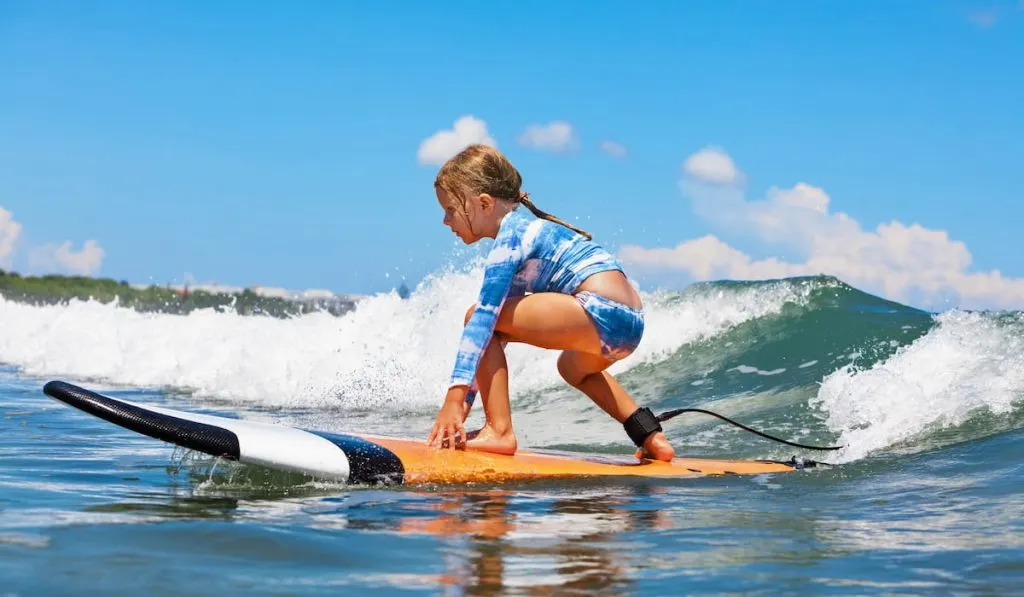
As their instructor, you need to start slow and remain patient. Remember, for children to be comfortable with surfing, they need to learn at their own pace.
What is the youngest age to start surfing?
When children are as young as 2 years old, they may start learning what it means to surf. But they should only do so with the supervision of a qualified adult.
While kids are surfing, the utmost concern of the supervisor or parent is safety. Kids should be made to wear a life jacket at all times and surf only small waves.
As a water-loving parent looking to pass down your passion for surfing to your children, you likely have questions about getting your kids started in the hobby.
Will they be able to surf if they cannot swim well? What are the right steps to take when teaching them?
This article will look to shed more light on this topic. Let’s get started!
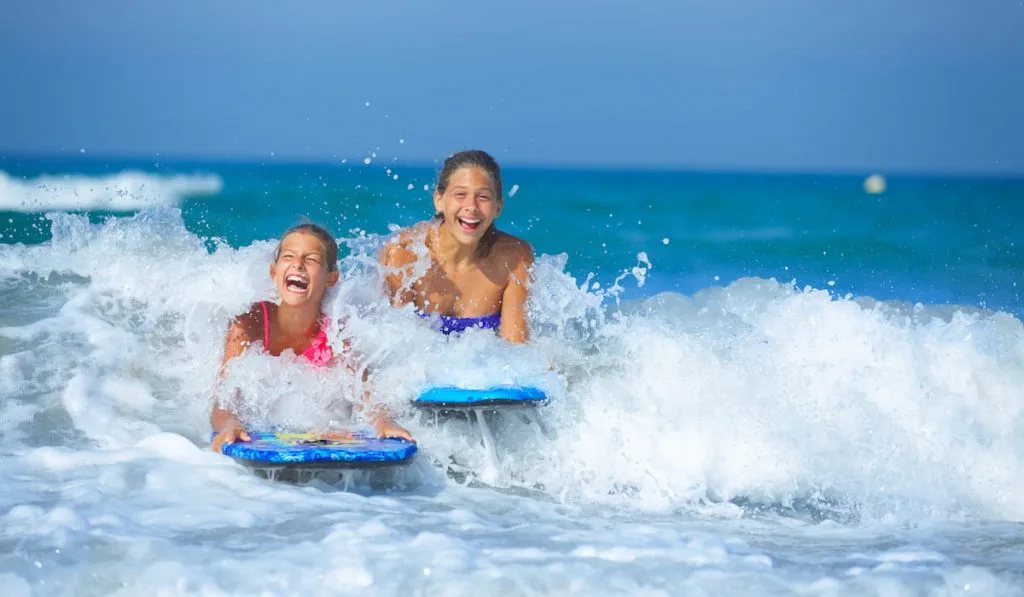
At What Age Can Kids Start Surfing?
A child can have their first surfing experience at age 2-3 with small waves.
But to ensure the surfing practice is safe, make sure the child uses a life jacket. It is also important to note the learning capacity and needs of your child and their reactions.
Children aged 4-6 can surf without any help but must be under constant supervision.
It is impossible to teach a four year old and a twelve year old in the same manner. Children typically understand and learn things differently as they age.
For children aged 2 and below, you should encourage them to be free and play more with water.
When they are 4-7 years of age, expose them to games to improve motor skills like jumping and running.
By the ages of 8-9, you may now introduce the kids to surfing without stopping the games. At this stage, they should already be used to the waves and tables.
When the kids are 10 years old or more, they should have become accustomed to the games.
At this point, you may introduce the rules, behaviors, and techniques to them.
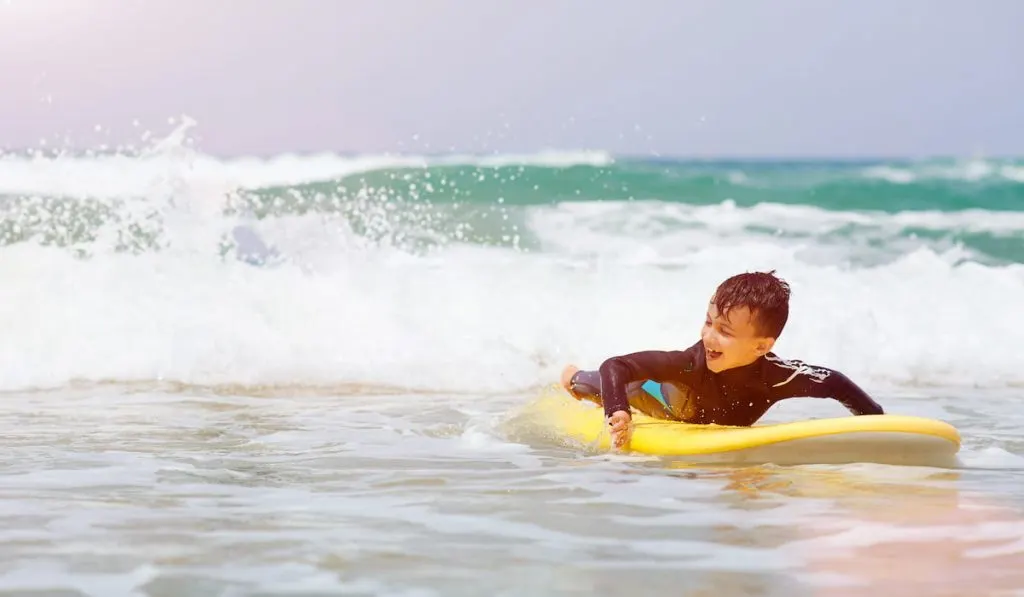
What Is the Best First Surfboard?
Choosing the perfect surfboard for your child can be a bit tricky.
When picking a first surfboard for kids, size is of the essence. You should consider the construction and style of the board.
Finding the right surfboard for a child depends on their athletic ability, age, and flexibility.
The best boards for kids aged 7 and below are markedly different from the boards for teenagers.
The recommended board for children under 7 is a bodyboard or a boogie board. Kids at this age do not require a surfboard.
Boogie boards are just the right size for kids, and they are easy to handle.
Despite not being a surfboard, the child can still learn all the basics of surfing on a boogie board.
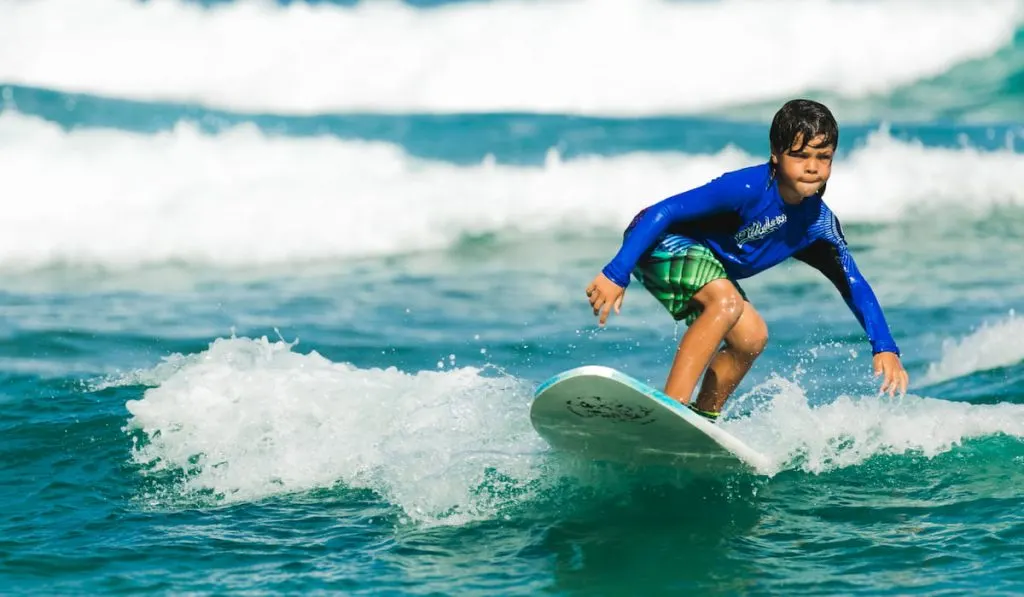
At age 8-12, kids are ready to own mini surfboards.
They are a lot stronger at this age and can carry their boards back and forth. The best material for their surfboard is foam since they reduce the chances of injury like cuts and bruises.
Tips to Teach a Toddler or Young Child to Surf
Increase Interest
Get the kids intrigued by letting them see how exhilarating surfing can be.
You can do this by letting them watch surf videos or taking them to the beach to see pro surfers.
Also, when buying them surfing equipment, let them choose their own gear.
Teach Swimming Skills
Introduce the child to the water either through a swimming pool or swimming lessons.
This will give them a big advantage when they are in the ocean.
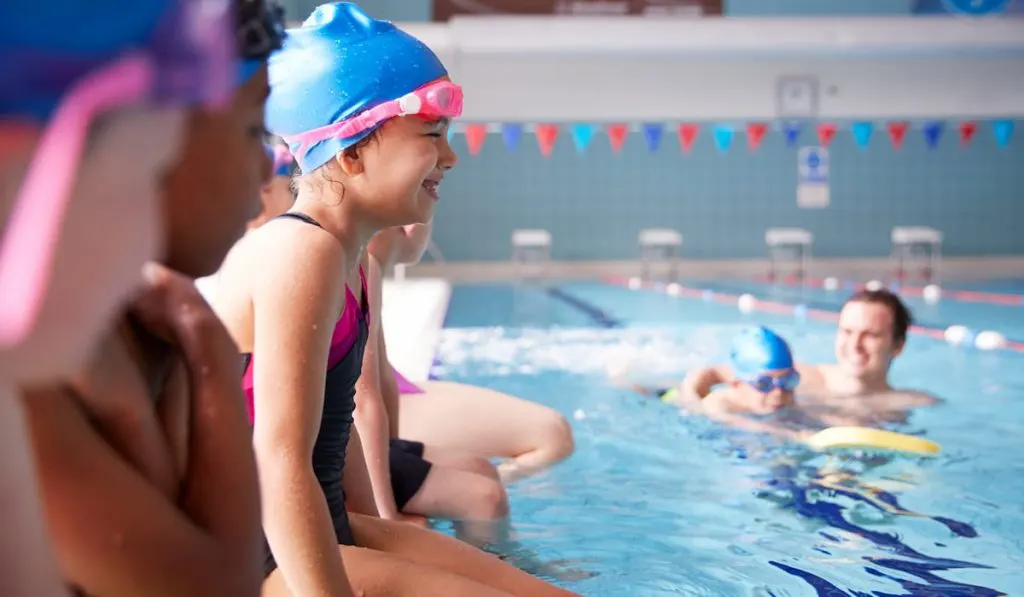
Visit the Beach
If the child is not used to the beach, slowly introduce them to it.
This will help them get comfortable with the sand, the waves, the crowds, and the waves.
Playing games on the shore will help ease their fears and allow them to observe the ocean.
Make Practice Fun
It is important to practice first on land, especially if the child has not laid, stood, or touched a bodyboard before. You can turn practice into games to make it fun for your kids.
For instance, you could play a game about how many times they can stand up within 20 seconds.
This will help them get comfortable on a surfboard and teach them some relevant surfing skills.
Teach Proper Technique
Teach the child how important proper positioning is on a surfboard. Let them practice until it becomes routine for them.
They can stand on the backend of their board while centering their weight at the middle of the board.
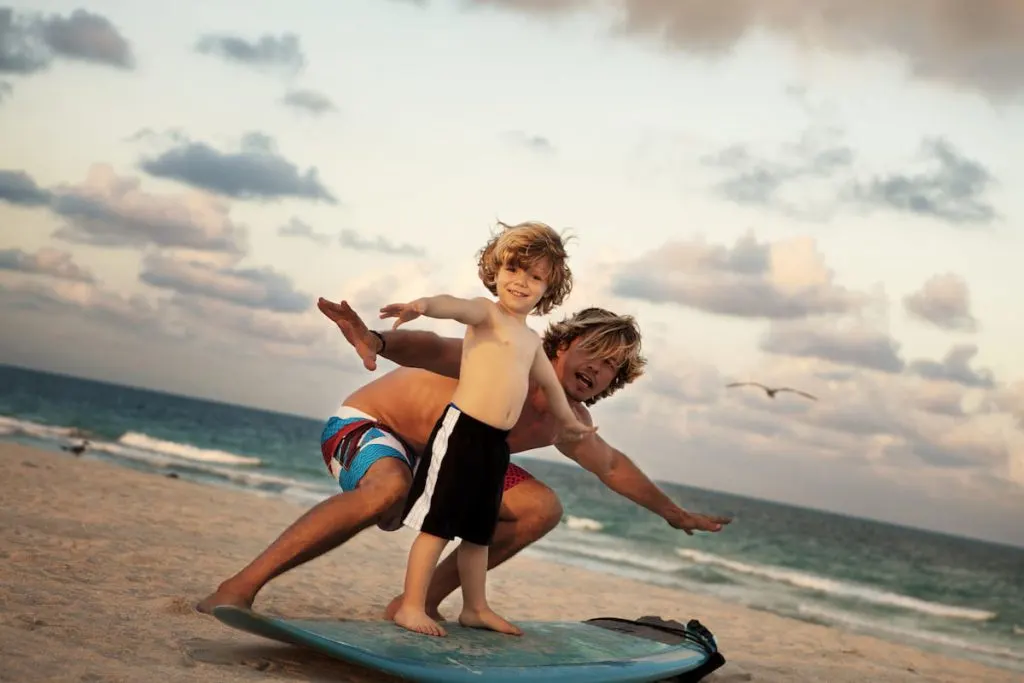
Supervise at All Times
Always remain close to a child while surfing.
When a child decides to go surfing, ensure you hold onto them as they stand on the board while on the water.
Take the child to a place where they can stand up if they jump or fall off their surfboard.
Ensure you hold the back of their surfboard when they catch a wave and ride it together, so you are close in case they fall.
Ideas for Successful Surfing with Kids
- Keep the child warm. It is a well-known fact that most kids prefer warm water. Letting them in cold water below 70 degrees will have them running back to shore. They should wear full wetsuits when going to surf since they are more susceptible to cold than adults.
- A child should not start surfing on a regular surfboard. A boogie board is more appropriate for a child just starting to learn how to surf. But as a child grows older, you can start them on a foam board, which is safer, lighter, and softer than regular boards. Surfboards of around 6-8 feet long are suitable for kids.
- Give a helpful push. Since paddling requires a lot of shoulder and arm strength, you should give a child a push from time to time. With time they will start catching waves of their own without any push from you.
- Kids enjoy doing activities with other kids. Having their friends join them to surf at the same time will help them progress a lot faster and reduce anxiety.
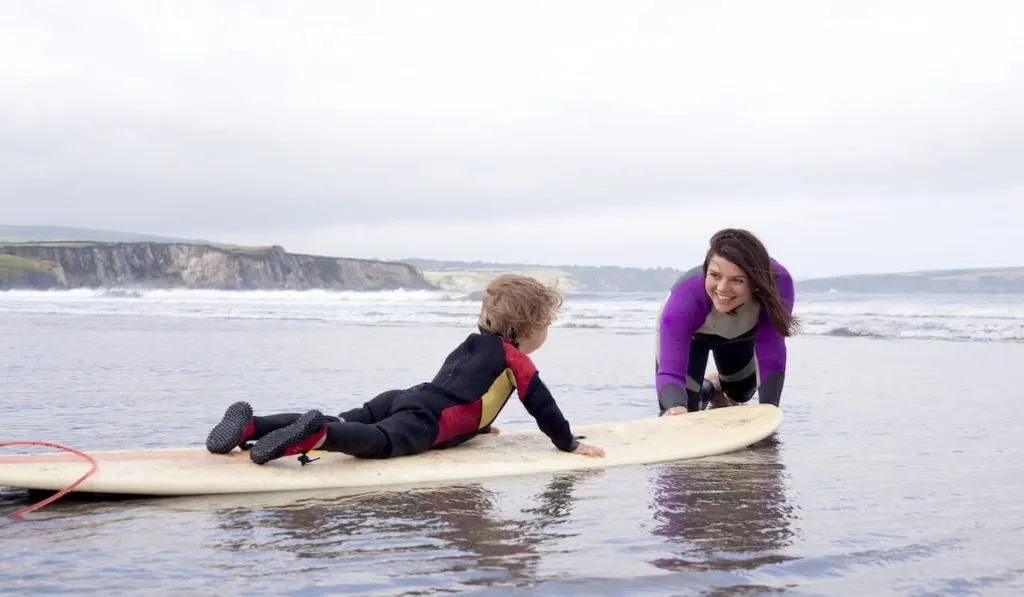
How Old Do Kids Need to Be to Start Surf Lessons?
It is recommended that kids start taking surfing lessons at age 8.
At that age, a child already understands what surfing is all about, and at this point, they can begin catching waves themselves.
Kids younger than 8 years old can start lessons. However, you must stay with them to assist them, surf with them, and hold them when they catch waves.
Final Take
Kids can start their surfing experience at age 2. But they may not be able to get into true surfing until they are 8-12 years old.
As kids grow older, it is expected that they will get better at surfing. You can make this more likely by ensuring that surfing is safe and fun for them.
Resources
- https://totalsurfcamp.com/en/blog/how-start-children-surfing
- https://www.getoutwiththekids.co.uk/water/family-surfing/
- https://wavehuggers.com/blog/teach-child-surf
- https://surfersfootprint.com/a-helpful-parents-guide-to-the-best-surfboards-for-kids/
- https://www.venturavan.es/en/at-what-age-can-you-start-surfing/
